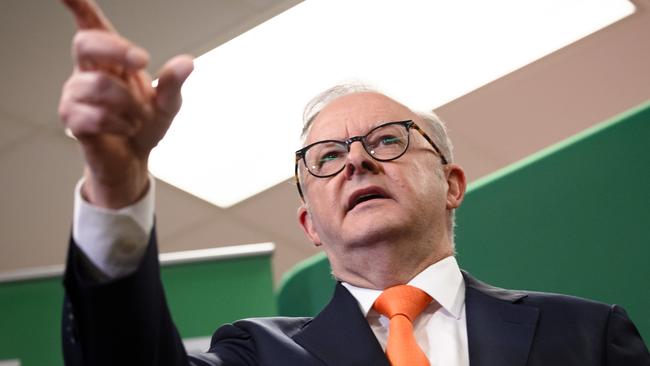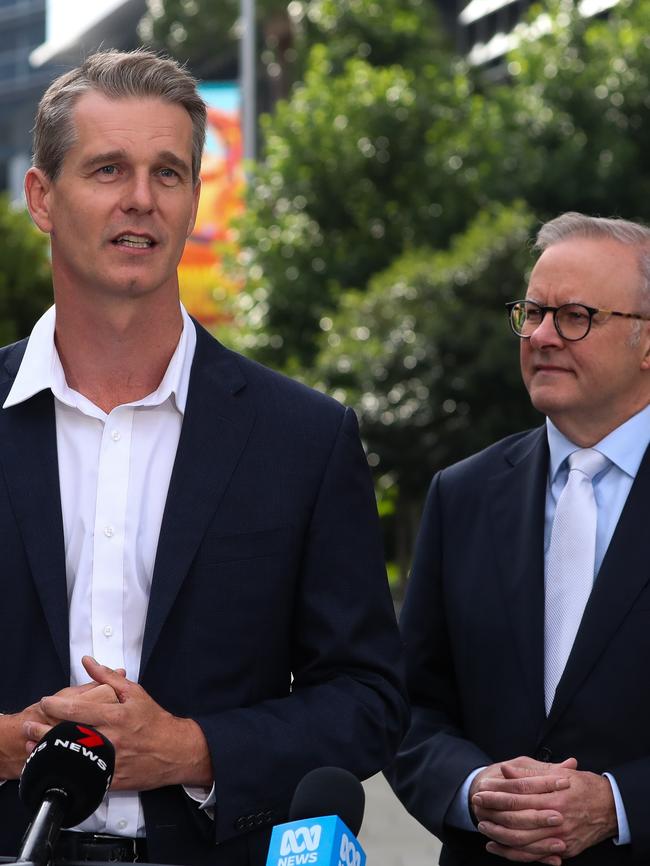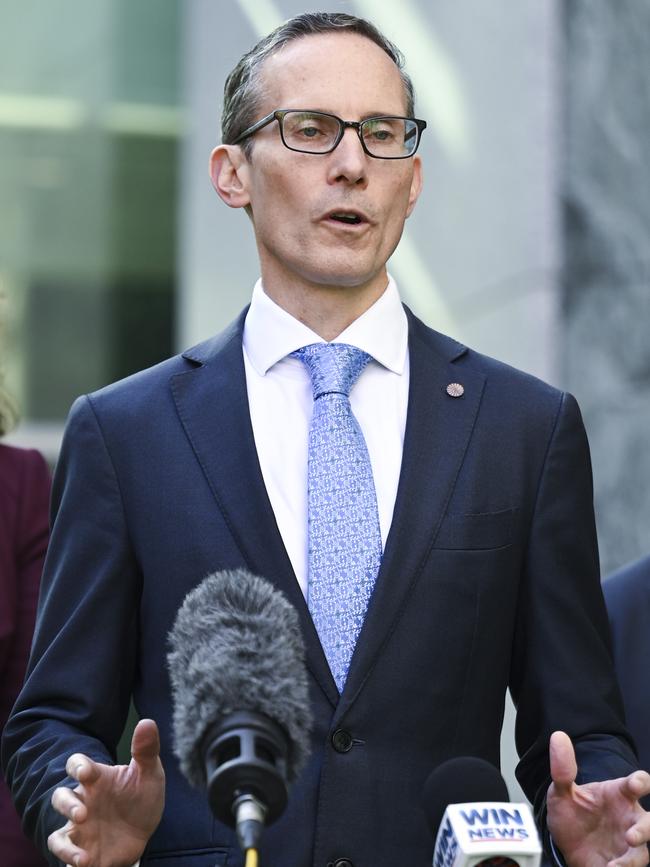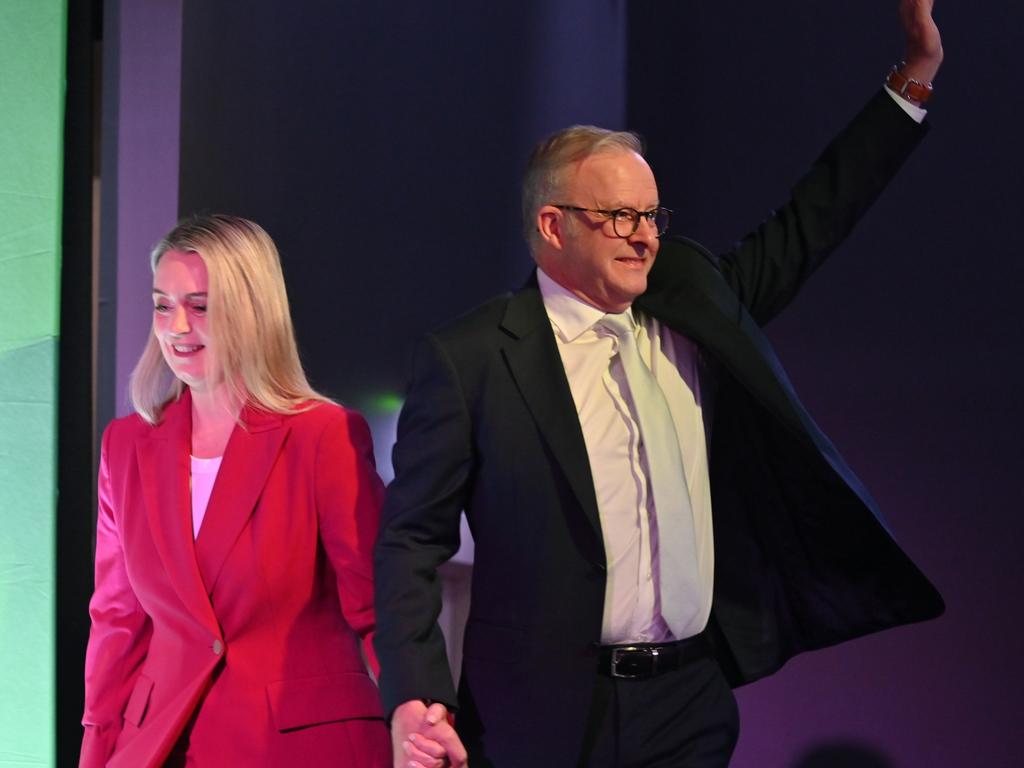
Some prime ministers have a real nose for policy. The need to assess options to deal with clearly identified problems, to weigh up costs and benefits, to undertake trials, to consider the case for doing nothing – these are the features of good policy formulation.
It’s fair to claim Anthony Albanese has no nose for policy. His previous experience in government covered spending portfolios with hardly any thought about costs-benefit ratios. He never held the Treasury or finance roles.
He also falls into the trap of arguing from his limited experience. Of course, saying Albanese is no policy wonk doesn’t mean he’s a bad politician. In fact, scooping up votes for Labor with electoral inducements is one of his strongest suits. A further strength is wedging the opposition by suggesting cuts would be made to a range of government benefits were the Coalition to take office.
There were some reasons for optimism on the policy front when the Albanese government came to office. A handful of elected members – think Andrew Leigh, Andrew Charlton, Daniel Mulino – have real credentials when it comes to evaluating policy options. But as it has turned out, there has been no noticeable impact on the quality of policy development.
In fact, all the indications are that the standard of policy has deteriorated markedly, with little thought given to the principles that should govern decisions about regulation and spending.
Take the proposed expenditure of nearly $8bn to expand the eligibility of bulk-billing incentives for GPs. Based on the highly questionable proposition that nearly everyone should be able to access a standard GP consultation free of charge, the policy that has been devised is extraordinarily inefficient.


It easily could end up costing taxpayers close to $300 per extra bulk-billed consultation because the higher rate of spending applies to consultations that are currently bulk billed. A simpler alternative would be to raise the government rebate paid to GPs and allow doctors to determine which patients should be bulk billed.
It is also a concern that the baseline information on bulk billing is not entirely accurate. We know the proportion of consultations that are bulk billed is higher than the proportion of patients who are bulk billed. This is because those who are routinely bulk billed see GPs more often.
The idea that the vast bulk of the population should be able to see a GP for “free” should be subject to serious debate. After all, everyone is required to make some contribution to the purchase of their prescribed drugs under the Pharmaceutical Benefits Scheme.
Note also that the bulk billing policy intervention applies only to a standard GP visit; it does not apply to longer visits that are often required for patients with complex, chronic conditions. It also doesn’t apply to medical specialist visits where the out-of-pocket costs can be very expensive.
Consider the rollout of urgent care clinics, which will cost nearly $800bn across five years from 2022-23. The estimated cost per consultation is close to $250, about six times the equivalent standard reimbursement to GPs.
There are 75 clinics dotted around the country, mainly in marginal electorates. The idea is that UCCs “can alleviate pressure on hospital emergency departments by offering short-term, episodic care for urgent, not life-threatening conditions”. Patients are not charged for attending. These UCCs are not without controversy and they face the same staffing pressures many GP practices do. They also distort the local market for GP services.
A preliminary evaluation of the operation of UCCs has not been able to establish that they have taken pressure off public hospitals. Anecdotal evidence suggests public emergency departments are as busy as ever. But when the Prime Minister was asked about the value of the UCCs and whether a further rollout should await evaluation, he merely claimed he “has seen with his own eyes that they work”. This is surely a bizarre response.
Consider also the recently raised issue of penalty rates. There is a case before the Fair Work Commission where the issue of the cashing out of penalty rates for high paid managers is being considered. In exchange for a pay rise of 25 per cent, these managers would forgo penalty rates, shift allowances and the like. There would be a substantial saving on compliance costs and managers would not be worse off.
But Albanese is not having a bar of it. He worked in a pancake restaurant in the Rocks when he was a university student and relied on the penalty rates to make enough cash. Does this prove anything? No one is talking about removing penalty rates from low-paid restaurant staff or retail assistants.
His plan is to impose some statutory obligation on the FWC always to refuse an application to eliminate or reduce penalty rates. This flies in the face of having an independent regulator in this space, but this complication clearly doesn’t even occur to the Prime Minister.
Take another example: free TAFE. On the face of it, this sounds good. Young people can undertake TAFE courses and bear no direct charge. The flip side is that people often don’t value something for which they have made no financial contribution. The government is rather cagey about the results of the free TAFE experiment. There is plenty of anecdotal evidence that completion rates for these courses are very low. By the same token, the TAFE providers have poor incentives to offer quality courses because the funding provided is regarded as too low.
Up to a point, the voting public is happy to go along with the illusion that money grows on trees if it means the continuation of cash and in-kind benefits provided by the government (aka taxpayers).
But just because something is “free” doesn’t mean people value it. And the risk of overconsumption in some instances may mean there is not that much value in the free stuff. The likelier outcomes are long queues and rationing.
We would be better served by having a prime minister with a real nose for policy, but an opposition leader with one would be second best. Given the me-tooing that has been a feature of the opposition’s election campaign, this looks like a forlorn hope.





